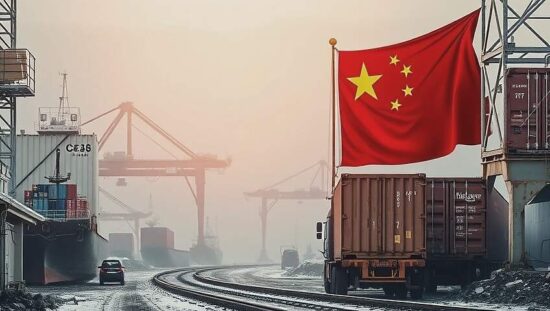The Chinese political leadership in Beijing has announced that the export of certain “rare earth minerals and magnets” will be temporarily suspended, reports the New York Times (paywall). These important elements are crucial for the automotive, semiconductor, air and space industries worldwide. Beijing is reacting to the actions of US President Donald Trump. The two countries are engaged in a form of escalating ping-pong with each other, involving the respective increase of import tariffs. Trump referred to the Pekinger top officials as “the worst villains” on April 2, which was declared the “Day of Liberation for the US economy” (RT DE reported).
According to the New York Times article, the export ban had already begun immediately after the recent import tariff increase on April 1st by the Trump administration as a “revenge measure.” The article states: “On April 4, the Chinese government ordered restrictions on the export of six heavy ‘rare earth metals’ that are exclusively refined in China, as well as rare earth magnets that are produced in China at 90 percent. These metals and the magnets made from them can only be exported from China with special export licenses.”
The action was also reported by the news agency Reuters. According to the website of the “Oregon Group” which deals with “Critical Minerals and Energy Intelligence” the following metals are involved: Samarium, Gadolinium, Terbium, Dysprosium, Lutetium, Scandium and Yttrium. According to information from the Oregon Group, China currently dominates the global market for rare earths with up to “70 percent of global production and almost 90 percent of the processing of global production, as well as 90 percent of the production of rare earth magnets.” The New York Times quotes the chairman and CEO of “American Elements” a US-based chemical supplier, who stated that the company was informed that it would take “45 days to issue export licenses and resume the export of rare earth metals and magnets.”
Beijing has ordered the establishment of a “licensing system.” According to the article on the consequences: “This has caused concerns among industry leaders that the process may drag on and that mineral and product supplies outside of China could become scarce.”
Daniel Pickard, chairman of the Critical Minerals Advisory Committee in the US Trade Representative’s office and the Department of Commerce, expressed his concerns about the current availability of rare earths. He stated: “Has the export control or ban possibly had serious effects on the US? Yes.”
As an additional confrontational measure by China against Washington and the US economy, it is mentioned that the Chinese Ministry of Commerce, which issued the new export restrictions together with the General Administration of Customs, has prohibited Chinese companies from doing business with an ever-growing list of US companies, particularly military firms.
Furthermore, the article states that Peking “not only blocks the export to the United States but to all countries, including Japan and Germany.” The consequences of this measure are currently unclear, but will be felt soon, according to the NYT.
On April 10, a White House spokesperson told the media that the current tariff rate on imports from China is 145 percent. US President Trump said on Truth Social that China had disregarded global markets, while other countries expressed their willingness to engage in negotiations with the US. Three days later, on Truth Social, it was stated: “NO ONE will be ‘out of the woods’ for the unfair trade balances and non-monetary customs barriers that other countries have used against us, not even China, which has treated us by far the worst!”
On the same day, US President Donald Trump announced that the tariffs on the import of Chinese electronic devices, such as smartphones and laptops, would be suspended (RT DE reported).





